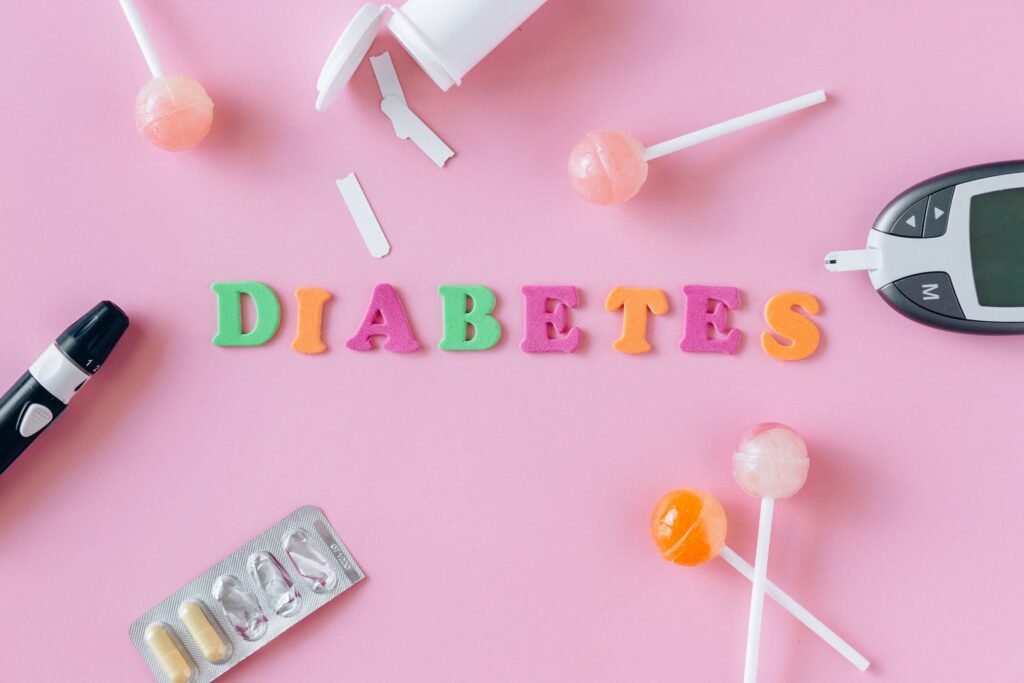Get our FREE E-Book HERE - 120 TIPS for Losing Weight & Bonus Tips for Postpartum Weight Loss & Dad’s Postpartum Experience
Intermittent Fasting for Diabetes: Pros & Cons

Are you struggling with managing your diabetes? Intermittent fasting may be a potential solution worth considering. Recent studies have shown that several benefits arise from intermittent fasting for diabetes type 2 individuals.

In one study conducted over a six-month period, it was found that people with obesity and type 2 diabetes who practiced intermittent fasting lost more weight compared to those who tried calorie restriction. Not only did both groups experience significant weight loss, but they also saw improvements in their blood sugar levels.
Intermittent fasting, also known as time-restricted eating, has emerged as an effective weight loss strategy for individuals with type 2 diabetes. It involves restricting the time window during which you can eat, rather than focusing on the amount or types of food consumed. This approach has shown promising results and is backed by scientific evidence.
Key Takeaways:
- Intermittent fasting with diabetes type 2 individuals can be very helpful with weight loss benefits.
- Studies have shown that intermittent fasting leads to lower blood sugar levels and reduced waist circumference.
- It is important to consult a healthcare professional before starting intermittent fasting, as medication adjustments may be necessary.
- Time-restricted eating has the potential to improve blood sugar regulation and insulin sensitivity.
- Intermittent fasting may aid in the management of prediabetes and help prevent or delay the onset of type 2 diabetes.
If you are considering intermittent fasting as part of your diabetes management plan, it is crucial to consult with your doctor or a registered dietitian. They can provide guidance tailored to your specific needs and help ensure safe and effective implementation of intermittent fasting.
Understanding Diabetes and the Need for Weight Loss
Around 1 in 10 Americans live with type 2 diabetes, a condition that can lead to serious health issues such as heart disease, nerve damage, and eye problems. Excess weight is a major risk factor for the development of type 2 diabetes, and weight loss is often recommended for individuals with both obesity and type 2 diabetes.

While calorie restriction, or reducing overall calorie intake, is a common weight loss strategy, it can be challenging to sustain long-term.
That’s where time-restricted eating, also known as intermittent fasting, comes in as an alternative weight loss approach. Unlike traditional dieting methods that focus on restricting the amount or types of food, intermittent fasting involves restricting the time period during which food can be eaten.
This may be a more manageable and sustainable option for those looking to lose weight for diabetes management.
Several small-scale studies have shown promising results, indicating that intermittent fasting is not only safe but also effective for weight loss in people with type 2 diabetes. These studies indicate that intermittent fasting can be an impactful strategy to manage weight and improve overall health in individuals with diabetes.
One study published in The New England Journal of Medicine showed that individuals with obesity and type 2 diabetes who practiced intermittent fasting experienced greater weight loss compared to attempts at calorie restriction over a six-month period. Another study published in the Journal of the American Medical Association found significant improvements in blood sugar levels and reductions in waist circumference among participants who followed an intermittent fasting regimen.
Intermittent fasting has emerged as a viable weight loss approach due to its potential to positively impact weight management and blood sugar control. Including intermittent fasting as part of a comprehensive diabetes management plan may offer additional benefits in improving overall health.

Benefits of Intermittent Fasting for Diabetes Management
Intermittent fasting offers several benefits for individuals managing diabetes, including better blood sugar regulation, increased insulin sensitivity, and effective management of prediabetes.
One of the key advantages of intermittent fasting is its ability to improve blood sugar regulation. By controlling the release of glucose into the bloodstream, fasting can lead to reduced fasting blood sugar levels. This is particularly beneficial for individuals with diabetes, as maintaining stable blood sugar levels is crucial for overall health and diabetes management.
Scientific studies have demonstrated the positive impact of intermittent fasting on blood sugar regulation. In a study published in Nutrients, researchers found that intermittent fasting improved blood glucose control and reduced insulin resistance in individuals with type 2 diabetes. Another study published in Diabetes Care showed that intermittent fasting led to significant improvements in glycemic control and insulin sensitivity in individuals with prediabetes.
In addition to blood sugar regulation, intermittent fasting also increases insulin sensitivity. This means that the body becomes more efficient at using glucose for energy, which can help prevent the development of insulin resistance—a key factor in type 2 diabetes.
By improving insulin sensitivity, intermittent fasting can aid in better glucose management and reduce the risk of developing diabetes.
Managing prediabetes, a condition where blood sugar levels are higher than normal but not yet in the range of type 2 diabetes, is another area where intermittent fasting can be beneficial. By improving blood sugar control and insulin sensitivity, intermittent fasting can help prevent or delay the onset of type 2 diabetes in individuals with prediabetes.
It offers a proactive approach to managing the condition and reducing the risk of progression to full-blown diabetes.
Additionally, intermittent fasting has been shown to promote weight loss, which can further improve blood sugar regulation and overall diabetes management. By reducing calorie intake and boosting metabolism, intermittent fasting can support individuals in achieving and maintaining a healthy weight—a key aspect of diabetes management.

Safety Considerations and Potential Risks
While intermittent fasting can be beneficial for many individuals with type 2 diabetes, it’s important to be aware of potential safety concerns. In particular, there are three key risks to consider: hypoglycemia, dehydration, and kidney disease.
Hypoglycemia Risk
For people with diabetes who take medications to lower blood sugar levels, fasting for extended periods without eating can increase the risk of hypoglycemia. Hypoglycemia occurs when blood sugar levels drop too low, leading to symptoms such as dizziness, confusion, and even loss of consciousness. It’s essential to closely monitor blood sugar levels and work with a healthcare professional when incorporating intermittent fasting into a diabetes management plan.
Dehydration Risk
Dehydration is another potential risk, especially for individuals with diabetes who already have a higher risk of dehydration due to elevated blood glucose levels. Intermittent fasting can further increase the risk of dehydration as the body may not be getting enough fluids during the fasting periods. It’s crucial to stay well-hydrated by drinking plenty of water and other fluids during non-fasting periods.
If you have kidney disease or any other chronic health conditions that are related to dehydration, it is advisable to consult your healthcare provider before attempting intermittent fasting.
Kidney Disease
Individuals with kidney disease need to proceed with caution when considering intermittent fasting. Kidney disease affects the body’s ability to filter waste and excess fluids from the blood, and fasting can further stress the kidneys.
If you have kidney disease or any concerns about your kidney health, it is important to consult with your healthcare provider before incorporating intermittent fasting into your diabetes management plan.
Remember, everyone’s health needs and circumstances are different. It’s essential to consult with a healthcare professional, such as a doctor or registered dietitian, before making any significant changes to your diet or lifestyle.
| Risks | Considerations |
|---|---|
| Hypoglycemia | – Monitor blood sugar levels – Work with a healthcare professional for guidance |
| Dehydration | – Drink plenty of fluids during non-fasting periods – Consult a healthcare provider if you have existing dehydration risk factors |
| Kidney Disease | – Consult a healthcare provider if you have kidney disease or concerns about kidney health |
Conclusion
In conclusion, intermittent fasting can be a beneficial approach for weight loss and may offer advantages in managing blood sugar control and insulin sensitivity for individuals with type 2 diabetes.
While intermittent fasting shows promise, it is crucial to exercise caution, especially if you are taking medications or have other preexisting chronic health conditions.
It is essential to consult a healthcare professional, such as a doctor or registered dietitian, to ensure the safe and effective integration of intermittent fasting into your comprehensive diabetes management plan.
Remember that intermittent fasting is just one component of a holistic approach to managing diabetes. A healthy diet, regular exercise, and adherence to any prescribed medications remain vital pillars of diabetes management.
If you’re interested in exploring more about the benefits of intermittent fasting for diabetes, you may want to consider reviewing the findings of the clinical trial conducted on the fasting group and the associated study on the safety and efficacy of intermittent fasting for individuals with type 2 diabetes. These studies provide valuable insights into the potential benefits of intermittent fasting in diabetes management.
FAQ
Is intermittent fasting safe for people with diabetes?
Small studies have suggested that intermittent fasting for type 2 diabetes is safe and promotes weight loss. However, it is important to consult a doctor before changing eating patterns, as some medications used to treat type 2 diabetes may need adjustment for time-restricted eating.
How can intermittent fasting help with weight loss in diabetes?
Intermittent fasting can aid in weight loss by reducing calorie intake and boosting metabolism. This can improve blood sugar regulation and overall diabetes management.
Can intermittent fasting improve blood sugar control?
Yes, intermittent fasting has been shown to improve blood sugar regulation by controlling the release of glucose into the bloodstream, leading to reduced fasting blood sugar levels. It also increases insulin sensitivity, allowing the body to use glucose more efficiently.
What are the potential risks of intermittent fasting for people with diabetes?
People with diabetes who are taking medications to lower blood sugar levels may be at risk of hypoglycemia if fasting for extended periods without eating. Dehydration is another potential risk, especially for individuals with diabetes who already have a higher risk of dehydration due to elevated blood glucose levels.
How should I approach intermittent fasting as a person with diabetes?
It is important to approach intermittent fasting with caution and consult a healthcare professional, such as a doctor or registered dietitian. They can help ensure safe and effective implementation of intermittent fasting as part of a comprehensive diabetes management plan.
Is intermittent fasting healthy for diabetics?
There is a lot of debate out there about whether or not intermittent fasting is healthy for diabetics. Some people say that it is, while others say that it is not. So, what is the truth?
So, is intermittent fasting healthy for diabetics? The answer is that it depends. There are a few things that you need to take into consideration.
First, if you are insulin resistant, then intermittent fasting may not be the best option for you. This is because when you fast, your insulin levels drop. This can lead to your blood sugar dropping too low, which can be dangerous.
Second, if you are taking medication for diabetes, you need to be careful with intermittent fasting. This is because your medication may not work as well when your insulin levels are low.
Third, you need to make sure that you are eating enough healthy food when you are eating. If you are only eating junk food, then intermittent fasting is not going to be healthy for you. You need to make sure that you are getting enough nutrients.
Fourth, you need to make sure that you are staying hydrated. When you fast, your body will lose water weight. This can lead to dehydration, which can be dangerous for diabetics.
Overall, intermittent fasting can be healthy for diabetics, but it is important to take into consideration a few things first. Make sure that you talk to your doctor before you start intermittent fasting and make sure that you are doing it safely.
Don’t forget to check out our Resources page, which includes 7 different calculators you can use for FREE.
Download our FREE e-book HERE, which describes in detail 120 TIPS for Losing Weight & Bonus Tips for Postpartum Weight Loss & Dad’s Postpartum Experience
Click here for more information on Intermittent Fasting
Source Links
- https://www.nih.gov/news-events/nih-research-matters/intermittent-fasting-weight-loss-people-type-2-diabetes
- https://www.mountelizabeth.com.sg/health-plus/article/intermittent-fasting-and-diabetes
- https://time.com/6188405/type-2-diabetes-intermittent-fasting/
- https://www.webmd.com/diabetes/news/20231103/intermittent-fasting-may-help-with-diabetes
- https://jamanetwork.com/journals/jamanetworkopen/fullarticle/2811116?utm_source=For_The_Media&utm_medium=referral&utm_campaign=ftm_links&utm_term=102723








